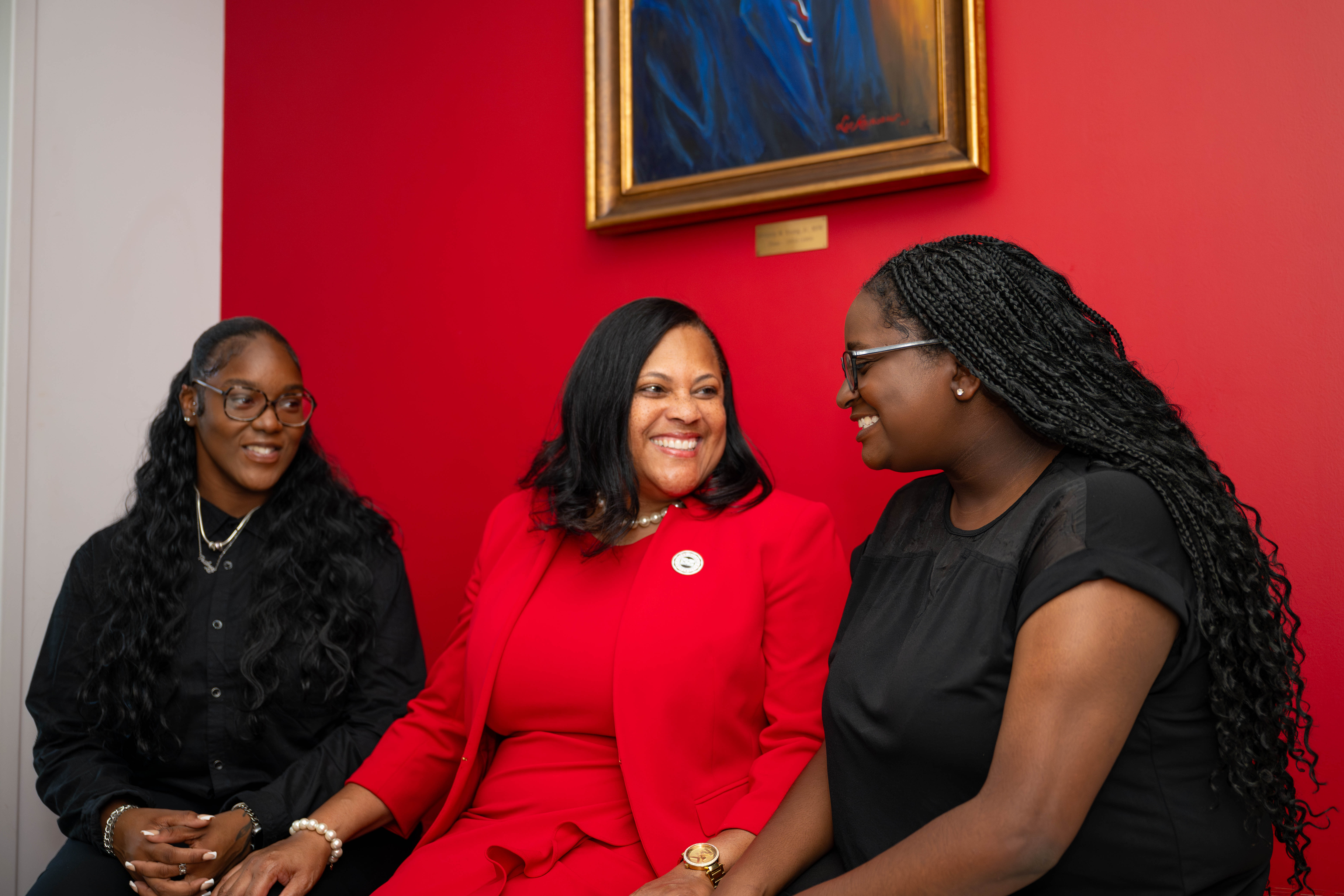Welcome from the Dean
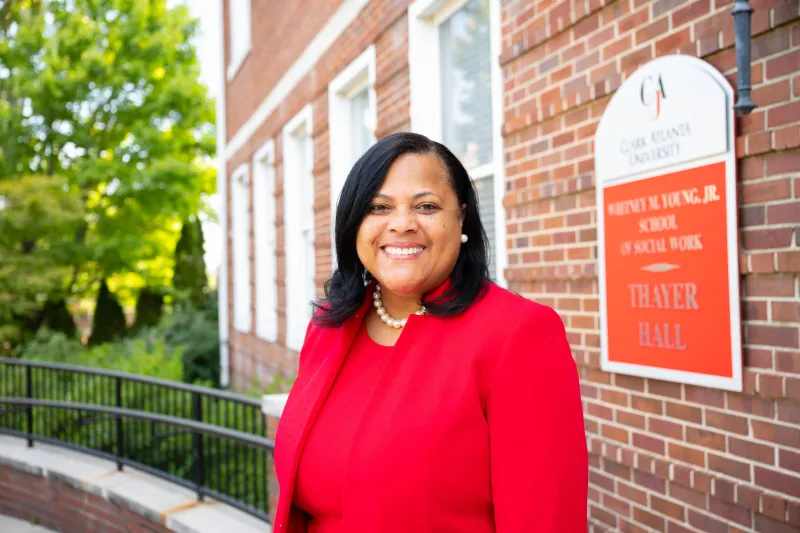
Thank you for connecting with the Whitney M. Young, Jr. School of Social Work at Clark Atlanta University. For over 100 years, we have been training and developing professional social workers with the knowledge and skills to make a positive impact in their communities. Our graduates are leading large social service organizations, providing direct clinical counseling and therapy in agency and private practice settings, transforming educational systems as school social workers, developing policy and legislation to improve the lives of marginalized communities, and conducting cutting-edge research as faculty scholars in social work programs around the nation.
As a Council on Social Work Education (CSWE) accredited program since 1928, we have been creating opportunities for our BSW, MSW, and PhD students to thrive in and out of the classroom. Our nationally and internationally renowned faculty are collaborating with students on research projects and innovative experiential learning opportunities. The Office of Practice Education is placing students in cutting-edge learning environments where our students get hands-on experiences and learn to apply social work competencies in real-world settings. Our student organizations are helping our students to build a sense of community and connection while implementing service projects on campus and in the community.
Equipped with an Afrocentric perspective, our graduates leave the Whitney M. Young, Jr. School of Social Work ready to make an immediate impact in their chosen area of practice.
Ready to start your journey? Take a moment to learn more about your program of interest by reviewing content on the website. Reach out to the Program Director of your prospective program or email socialwork@cau.edu and we will direct you to the appropriate contact.
Looking forward to meeting you on campus or virtually soon!
Dean Jackson
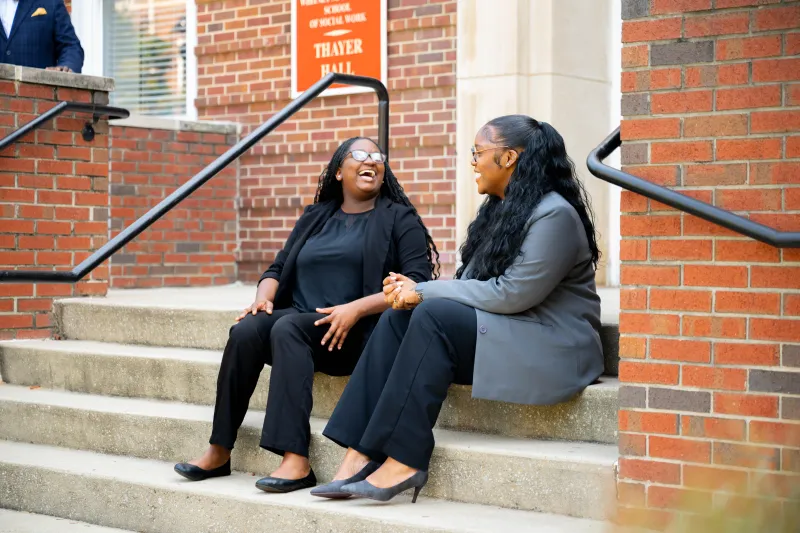
Who We Are
Founded in 1920, the Whitney M. Young Jr. School of Social Work is the nation’s first accredited school of social work at a historically black college or university (HBCU), and the first to be accredited in the State of Georgia. The school is accredited by the Commission on Accreditation of the Council on Social Work Education (CSWE) and has maintained its accreditation since 1952.
The School utilizes an Afrocentric, autonomous social work practice model to prepare culturally competent practitioners capable of intervening and working with systems of all sizes and resolving problems that particularly affect African American children, families, and males within the context of family and community.
The curriculum is built on a liberal arts base and is guided by humanistic values. Graduates are prepared to recognize and impact social and economic injustice issues at the local, regional, national, and international levels.
Academic Programs
Develop the Leader Within: Find the program that’s right for you
-
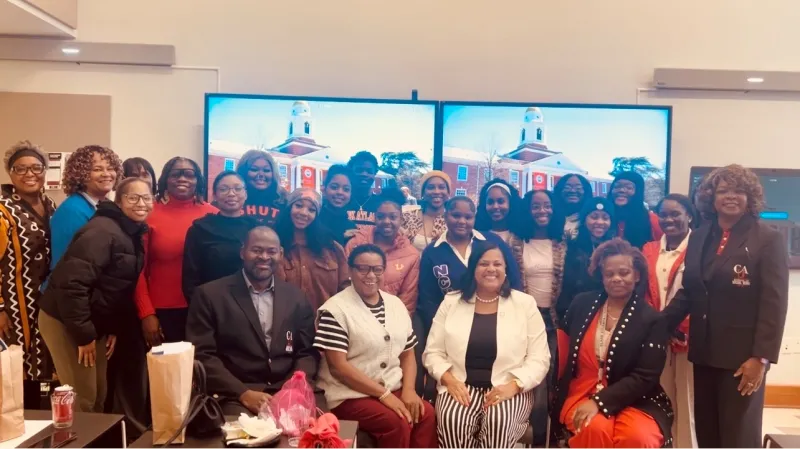
Undergraduate Program: Bachelor of Social Work
Trains culturally competent social workers through an Afrocentric lens
Prepares students for generalist practice
-
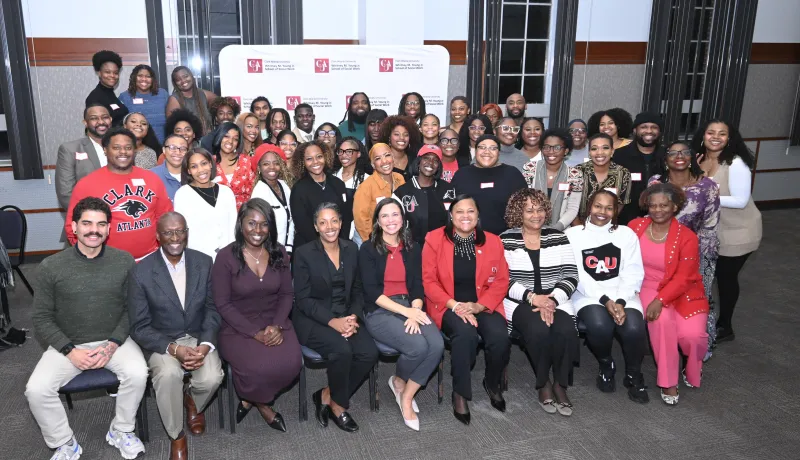
-
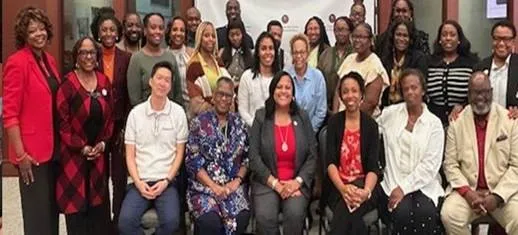
Ph.D. Program
Policy, Planning and Administration, and Social Science
Courses in cognate area
Opportunities for research and scholarship
Centers & Institutes
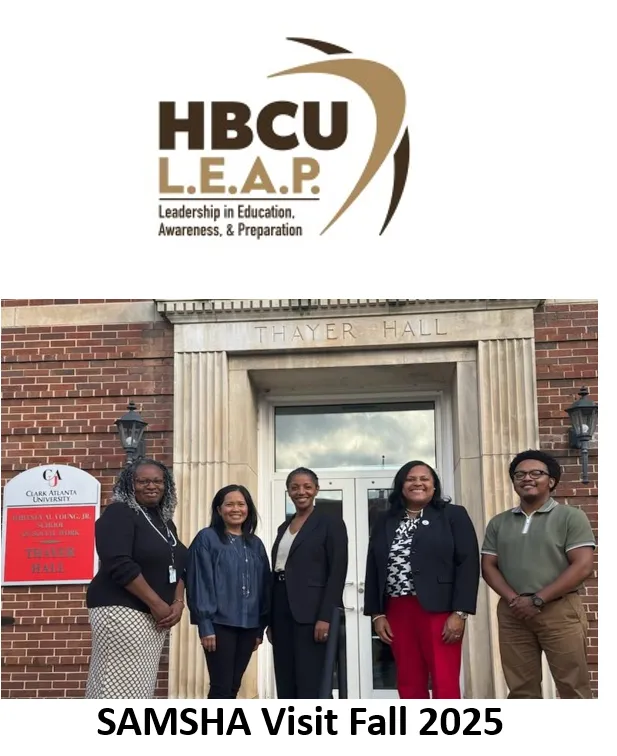
HBCU L.E.A.P. (Leadership in Education, Awareness, and Preparation)
The purpose of the SAMHSA-funded Center is to provide training, recruit, and prepare students for obtaining advanced degrees in the behavioral health field to address mental and substance use disorders.
The Afrocentric Perspective
The Afrocentric Perspective is a culturally grounded social work practice-based model that affirms, codifies, and integrates common cultural experiences, values, and interpretations that cut across people of African descent.
The Perspective encompasses the intersectionality of race, and other societal factors such as gender, ethnicity, social class, ability status and sexual orientation. Further, the Perspective acknowledges African cultural resiliency as a foundation to help social work practitioners solve pressing social problems that diminish human potential and preclude positive social change.
Thus, Afrocentric social work practice as a pedagogy imbedded within the Whitney M. Young Jr. School of Social Work Programs, endeavors to prepare our students to address specific psychological, social, spiritual, and economic problems experienced by people of African descent and to address problems confronted by all people.
Culturally Grounded
The combination and utilization of cultural sensitivity and cultural competence in social work practice.
Intersectionality
The examination of how two or more social constructions of oppression and/or privilege intersect to shape people’s social environment and cumulative lived experiences.
Spiritual
In social work practice this area of assessment and intervention seeks to understand a client’s sense of self, sense of meaning and purpose, in an attempt to offer solutions to better manage life challenges.
School Of Social Work Disclosure
Institutional Public Disclosure Statement
Clark Atlanta University offers several programs that prepare students for occupations requiring State licensure. While program curricula often meet the requirements of states outside of Georgia, statutes and regulations about licensure vary widely.
Students should understand that educational requirements are just one part of licensure or certification in a profession. Applicants are often required to demonstrate passage of national exams, have applicable work or clinical experience, complete background checks, and pay required fees, etc. Each state board, department, or agency has the ultimate authority and discretion to determine whether professional licensure or certification will be issued.
Use the link below to review licensure requirements for specific programs.
School of Social Work
